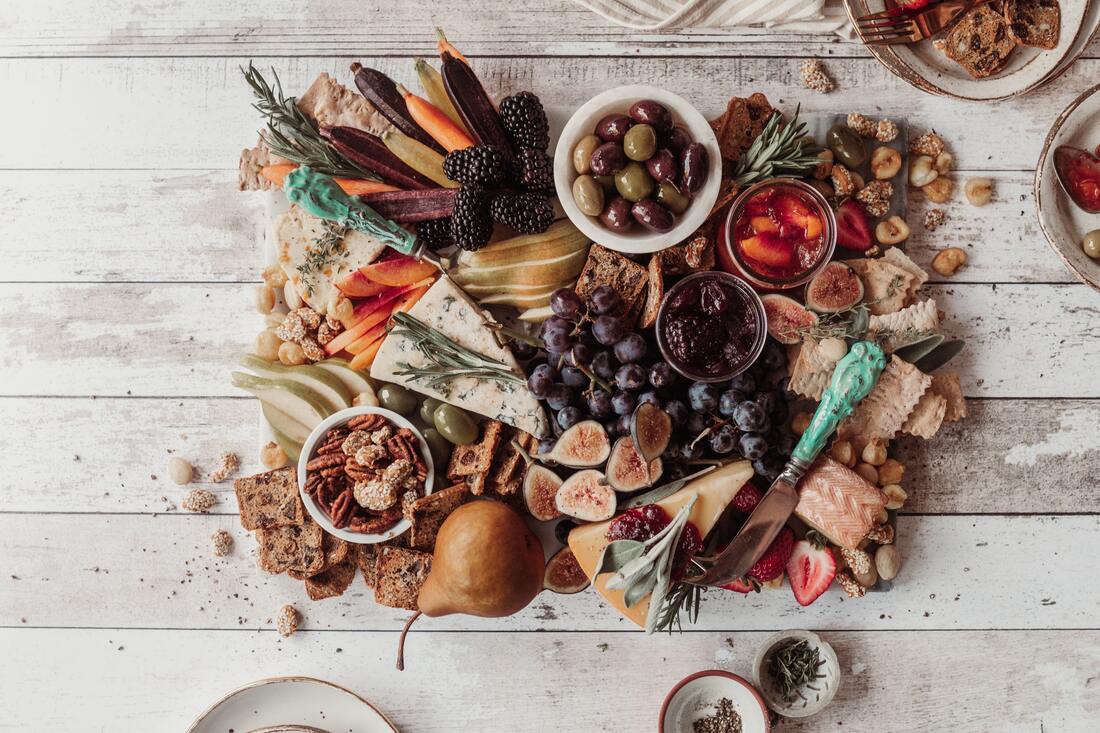|
Eating has proven time and again to be an effective way to bring ourselves comfort in times of stress and grief. I don't know about you but stress and grief are two emotions ranking high on my emotional radar these days! Navigating the foreign landscape of living during a pandemic has turned the volume up on these human emotions, as well as worry, frustration, and boredom. Now, more than ever, we need effective coping skills. If emotional eating has become a regular way for you to cope, I invite you first to give yourself a break. Things are really hard right now. The future is uncertain. Caring for yourself, however you can, is a very important thing to do. Here's another reminder: eating is not the ONLY way to give yourself comfort . Let's put a pin in that thought and dive into the science of emotional eating. I think understanding how your brain and body work helps to get some perspective and empower a different approach to self-care. The Science of Emotional Eating: Food - and even the anticipation of eating it - triggers a release of dopamine from our brains. Dopamine is a powerful chemical signal (neurotransmitter) your brain produces that makes you feel good. A number of things trigger its release: falling in love, accomplishing a goal, eating sugar, gambling, smoking cigarettes, and taking cocaine or other drugs, among others. In bad times, dopamine is suppressed, making the desire for it even stronger and the effects of it more impactful. For the record, I would consider living in a pandemic as being a "bad time," so this bit particularly applies to us right now. The effect of this "feel good" release in our brains is not equal from one experience to the next. If you ate the same amount of sugar one day after another, the amount of dopamine released would be less and less. This is how addictive behaviors develop: in search for more dopamine you need more sugar (or cigarettes, cocaine, etc.) every day to get the same hit of dopamine. If you find yourself craving food and seeking out food for comfort, stimulation, or emotional release of another kind, take a deep breath. You're not doing anything wrong. You're actually satisfying a biochemical need. And it's ok to keep doing that. If you feel ready and able to change up that coping mechanism for another that will be equally effective, here are some strategies to prepare yourself to make that change:
If and when you find yourself emotional eating, despite your best efforts to do otherwise, here's my closing thought: Let it go. We are living in a very trying time. Be kind to yourself. Recognize that you are expressing self-love the best way you know how. Find soft edges where you can stretch and learn and grow, where you can try some of the strategies above. Know that you will succeed and you will fail. That's learning! Learn with kindness, compassion, and forgiveness for the perfectly imperfect human that you are. For more on dopamine and emotional eating: What is Dopamine? Dopamine is ______? Emotional Eating: Experts Reveal The Triggers And How To Control Them
0 Comments
Leave a Reply. |
I love food.I love thinking about it, talking about it, writing about it. I love growing food, cooking and eating food. I use this space to try to convey that. Follow me on social media for more day-to-day inspiration on these topics. Categories
All
|

 RSS Feed
RSS Feed